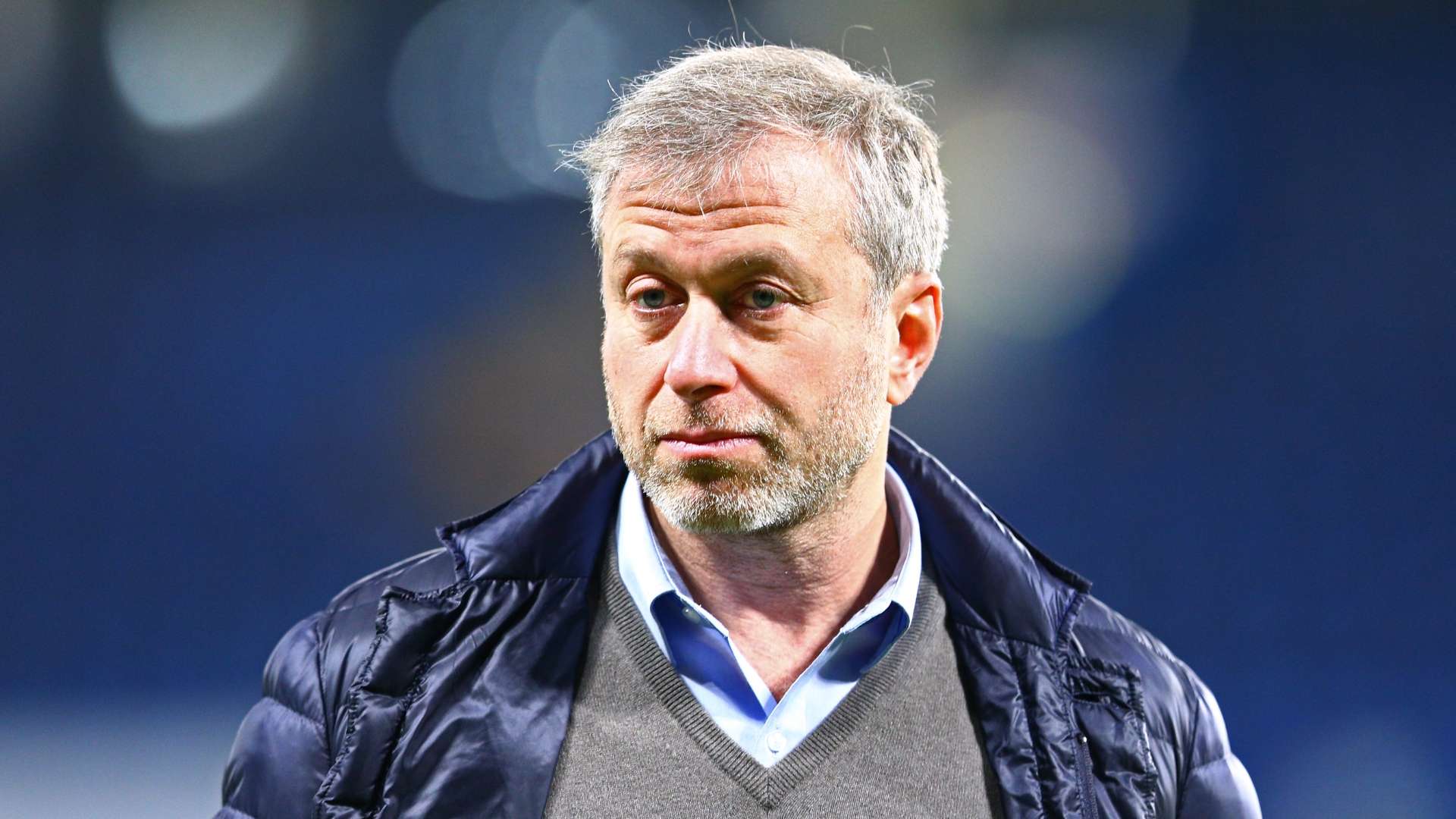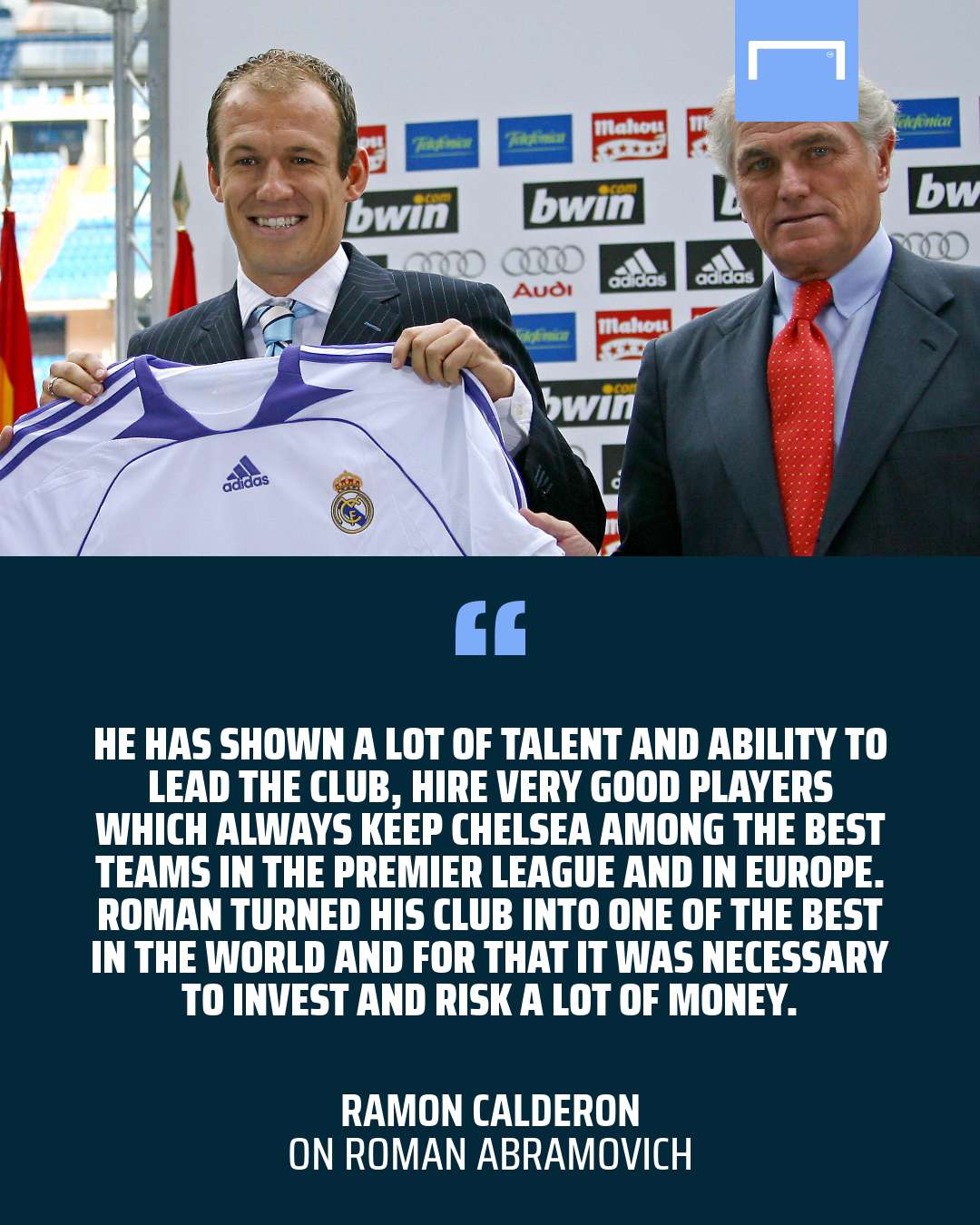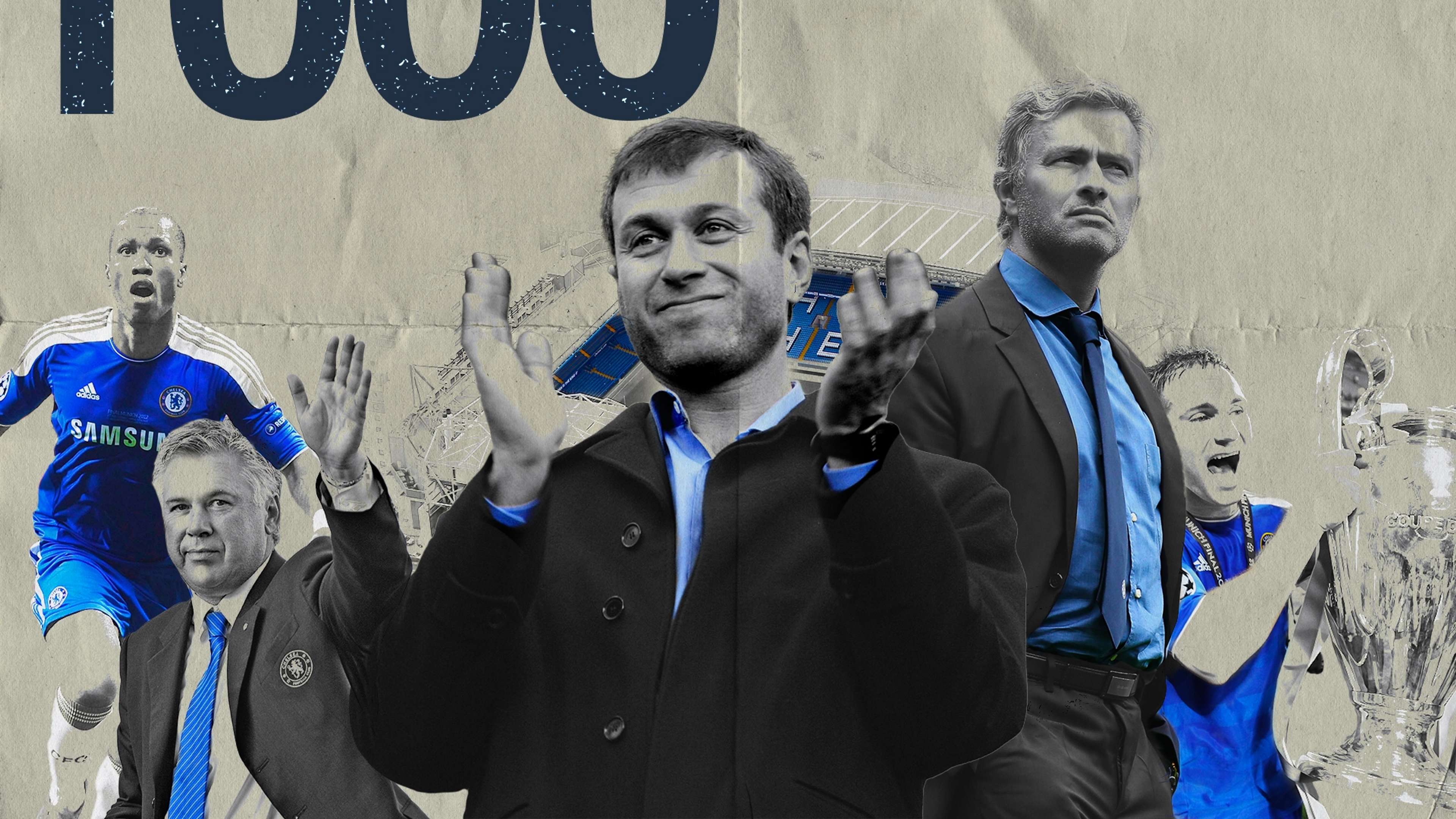Roman Abramovich couldn't have picked a more fitting match to celebrate his 1,000th match in charge of Chelsea, who will welcome Jose Mourinho's Tottenham to Stamford Bridge on Sunday.
The Russian businessman famously hired the Portuguese coach in the summer of 2004 and the self-anointed 'Special One' led the Blues to a first domestic league title since 1955 in his first season at the helm.
In addition, it was Spurs that Abramovich considered buying before he eventually snapped up Chelsea in 2003 for £140 million ($233m).
Despite an £80m ($106m) debt, Chelsea were the more attractive proposition at the time. They had just qualified for the Champions League and then-owner Ken Bates was willing to negotiate a full sale, rather than a partial deal, which was reportedly proposed to Abramovich when he contacted Spurs supremo Daniel Levy about a potential takeover.
It is no exaggeration to state that Abramovich's arrival in west London altered the entire course of English and European football history.
"We suddenly had the money to compete with Manchester United and Arsenal for the league and Champions League," Jesper Gronkjaer, who scored the goal that secured Chelsea's place in the 2003-04 Champions League, told Goal.
"I had never experienced a change of owner before so I didn’t expect anything big to happen. We soon found out this was for real and a lot of money would be put into the club.
"No one could imagine what would happen. Overnight, all of the newspapers were filled with names of players and managers going to Chelsea. It was about new players coming in for every position.
"I don’t think you would find a Chelsea player in that pre-season who wasn't worried about their position at the club. We were in a training camp in Italy in a small town in the mountains.
 Getty Images
Getty Images
"There was a cafe in the town where players could go and walk to. It was full of agents and media. You saw players sitting in corners talking to their agents asking what they should do because no one knew what would happen."
What happened was sensational, with Abramovich flexing his financial muscle to displace Arsenal and Manchester United at the summit of the Premier League after an unprecedented level of transfer expenditure.
In an instant, Chelsea had become the richest club in the world, which put noses out of joint across Europe. However, former Real Madrid president Ramon Calderon says he never had any issue with Abramovich's initial spending spree.
"I had to negotiate with him the signing of Arjen Robben (who moved to the Santiago Bernabeu in 2007), a transfer for which he set an initial price and did not lower by a single euro," Calderon told Goal.
"Roman Abramovich is a good and a tough negotiator who defends his interests and those of his club very well. But I had a good relationship with him.
"He has shown a lot of talent and ability to lead the club, and hire very good players, who always keep Chelsea among the best teams in the Premier League and in Europe.
"Roman turned his club into one of the best in the world and for that it was necessary to invest and risk a lot of money. Rather than it being annoying, I think we all thought that an important competitor had emerged in the market and competition is always good in any activity.
"It is normal for great fortunes to be invested in football due to the great repercussions and influence that this sport has in all areas of our lives."
 Getty Images
Getty Images
Still, Abramovich had his critics. Bayern Munich chairman Karl-Heinz Rummenigge felt that a billionaire benefactor and a lucrative TV deal had allegedly resulted in Chelsea, and Premier League clubs in general, inflating the transfer market: "I just hope the European Union puts a stop to these excesses of Abramovich and foreign television."
The EU never intervened, though. Most English clubs got richer and richer thanks to the sale of overseas broadcasting rights, but even Manchester United struggled to compete with Chelsea for top players.
During the early years of Abramovich's reign, legendary Red Devils boss Sir Alex Ferguson saw his side miss out on signing not only Robben but also Michael Ballack, John Obi Mikel and Michael Essien in quick succession.
Essien had been on United's radar since he was 17 but they never got a deal over the line for the Ghana international, who ultimately joined Chelsea for £24.4m.
"When I came to Chelsea, I had Man Utd after me as well, but only Chelsea could afford me in the end," Essien told Goal.
Yet some English sides benefitted from Abramovich's willingness to splash the cash. West Ham, for example, were facing financial ruin following their relegation from the Premier League in 2003, so they were thrilled when Chelsea swooped for two of their best young players.
Indeed, the deals for Joe Cole and Glen Johnson helped the Hammers balance their books. The deal for Johnson, in particular, was well above the going rate, with Chelsea paying £6m for a right-back who had only played 24 times at senior level.
If Abramovich was generous in that sense, he was ruthless in other ways. He quickly became infamous for losing patience with managers, even Mourinho.
However, his public persona as a cut-throat businessman, which was based upon his penchant for regularly hiring and firing employees, was at odds with his private behaviour.
"He was a quiet and nice guy," Gronkjaer said. "He would talk to us through an interpreter. He just seemed like just a normal guy. You would meet him at the training ground or the stadium and he didn't say much but he was friendly."
Now, Abramovich is almost never at Stamford Bridge or the Cobham Training Ground that he built. Some players like Frank Lampard, John Terry, Petr Cech, Didier Drogba and Branislav Ivanovic used to have a direct line to Abramovich but the practice has since stopped, while most of the club's transfer dealings are now carried out by his most trusted director, Marina Granovskaia.
Still, his presence is felt at Chelsea, as he actively pushes charity projects and remains available to the board when needed. Indeed, it is understood that he was consulted during the difficult negotiations to sign Kai Havertz from Bayer Leverkusen this summer as both parties argued over every euro of the deal.
The Havertz transfer was part of a £220m ($275m) splurge on new players that evoked memories of Abramovich's early years, long before Financial Fair Play (FFP) was brought in by UEFA to deter other billionaires from embarking upon similar spending sprees.
That hasn't worked, of course, as we've instead seen the rise of nation-state owners, in the case of Manchester City and Paris Saint-Germain, who in recent years have taken spending to previously unimaginable levels.
Abramovich, by contrast, has now adopted a more prudent approach. Chelsea have tried to embrace a more sustainable business model but they're still heavily dependent upon their owner's investment.
Abramovich has had to write off debts of £1.2bn ($1.6m) over the years and the latest accounts show a loss of £96.6m ($128.3m), underlining just how important his money remains to Chelsea.
Thanks to their owner, Chelsea remain competitive at the highest level, while their world-class academy, which has resulted in a loan army, would just not have been possible without him.
It's just as well, then, Abramovich is still said to be completely in love with the club he bought 17 years – and 999 matches – ago.
